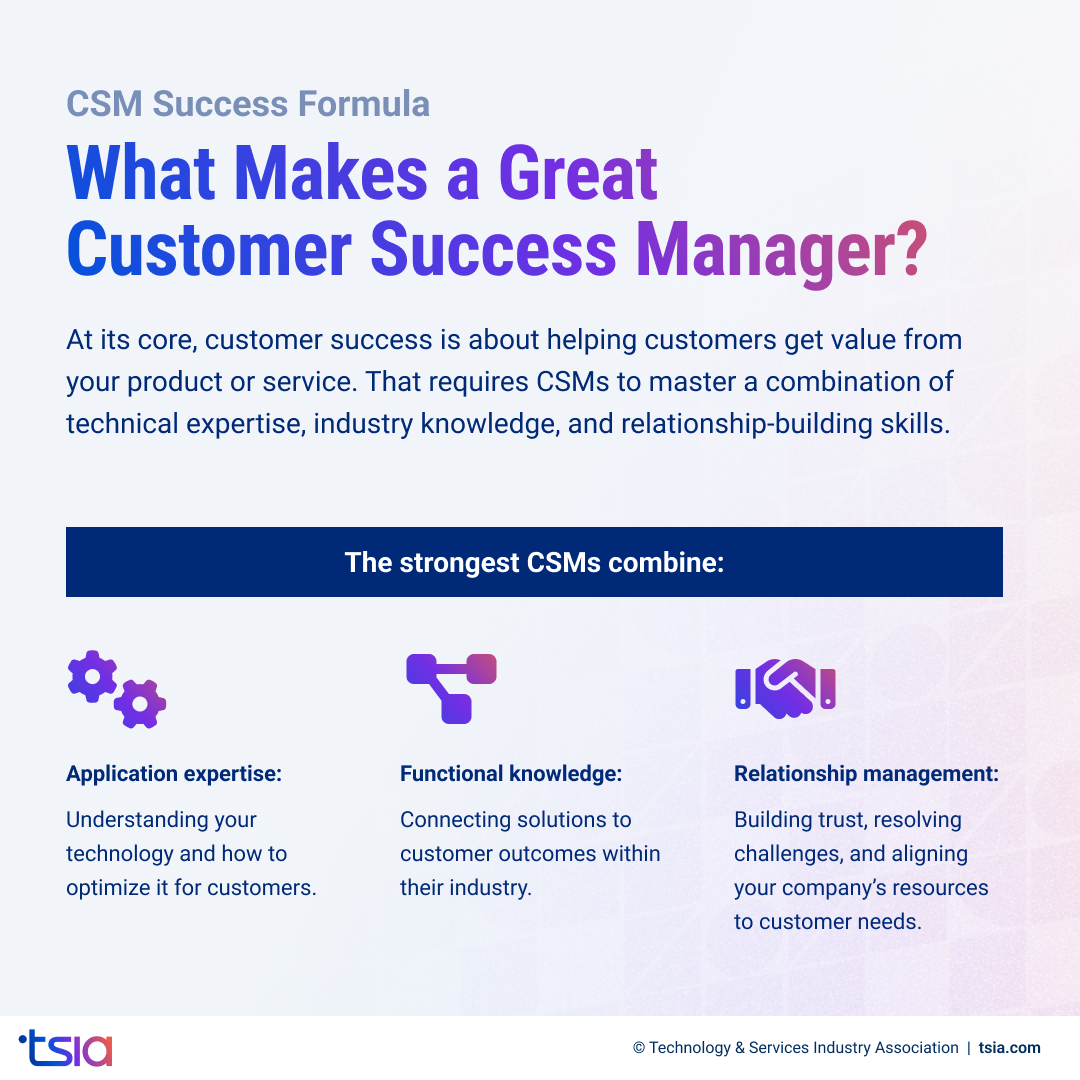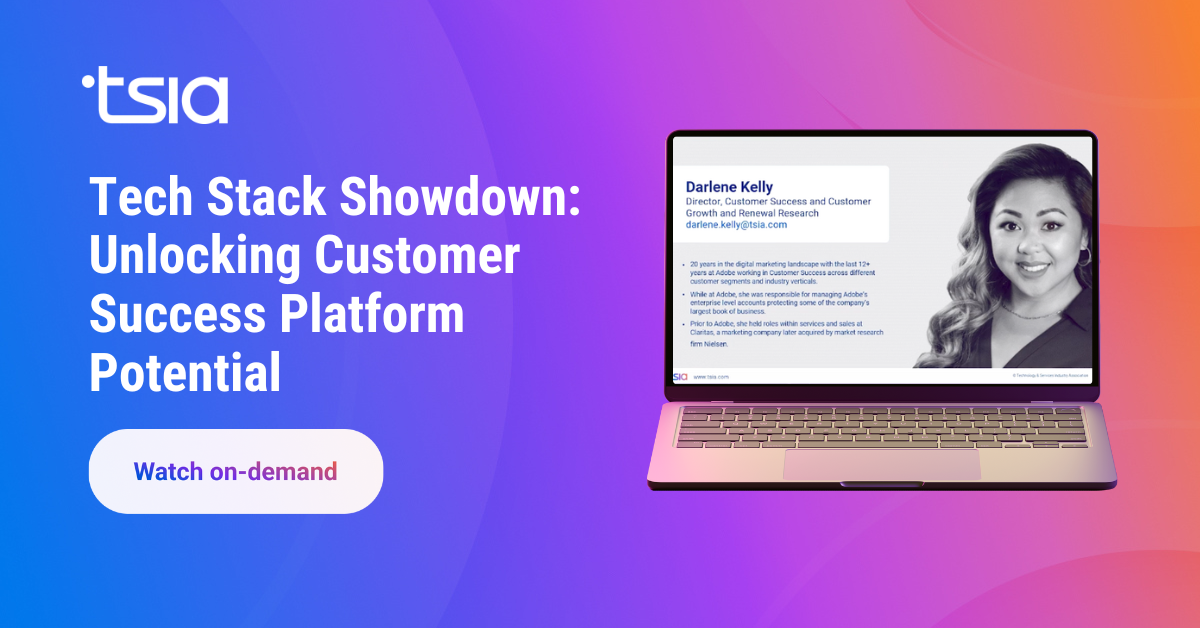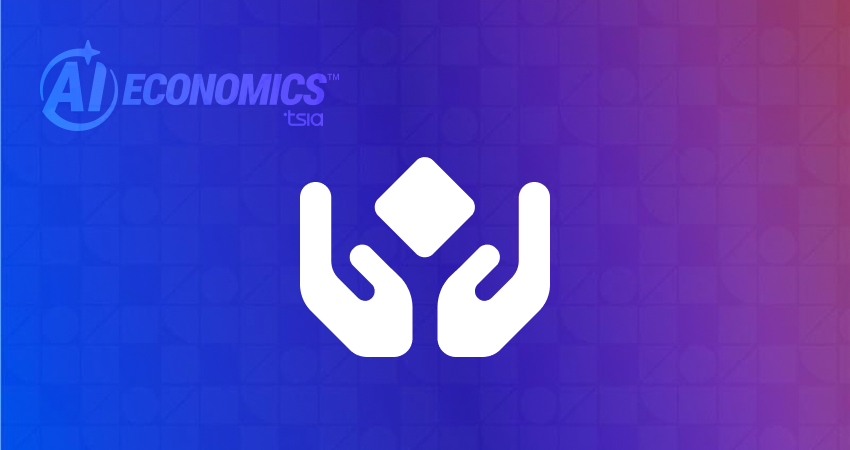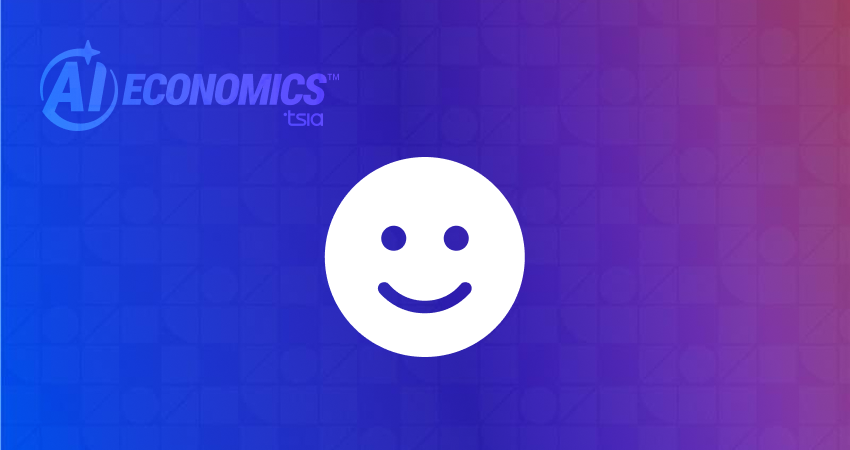Hiring the right Customer Success Manager (CSM) can significantly impact your ability to retain customers, drive expansion, and foster long-term loyalty. The best CSMs are more than account managers or product experts—they’re trusted advisors who understand your customers’ goals and guide them to success at every stage of the journey.
When you bring a new CSM onto your team, you’re not just filling a role. You’re investing in the health of your customer relationships, which directly impacts retention and revenue growth. That’s why knowing which skills to prioritize during hiring is so critical.
Key Takeaways
- The right customer success skills drive retention, revenue, and long-term satisfaction.
- Look for a blend of empathy, communication, and data-driven problem-solving.
- Evaluate both hard and soft skills during the hiring process to build a future-ready customer success team.
Why Hiring the Right CSM Matters
Your customers expect more than quick answers to their questions. They expect you to understand their business goals, help them adopt your technology, and guide them toward outcomes that matter. A skilled CSM ensures customers realize value from your products and services, which directly influences renewals and expansion.
When you hire the right person for the role, you’re not only filling a position, you’re investing in the long-term health of your customer base. A great CSM applies their expertise at every stage of the customer journey, from onboarding to renewal. They know how to:
- Accelerate adoption by helping customers unlock value early.
- Spot risks before they escalate, reducing churn.
- Identify expansion opportunities by tying product features to evolving customer needs.
- Strengthen renewals by proving business outcomes and reinforcing ROI.
Hiring decisions also shape your entire customer success organization. When you bring in people with the right skills, they raise the bar for your team, influence your processes, and help establish a customer-first culture. Conversely, the wrong hire can create friction, slow down adoption, and even jeopardize revenue.
Ultimately, hiring the right CSM is a strategic decision—one that impacts retention, customer satisfaction, and your ability to scale profitably.
Related: Setting Effective Goals for CSMs in Lead Generation
What Makes a Great Customer Success Manager?
At its core, customer success is about helping customers get value from your product or service. That requires CSMs to master a combination of technical expertise, industry knowledge, and relationship-building skills.
The strongest CSMs combine:
- Application expertise: Understanding your technology and how to optimize it for customers.
- Functional knowledge: Connecting solutions to customer outcomes within their industry.
- Relationship management: Building trust, resolving challenges, and aligning your company’s resources to customer needs.
From this foundation, several specific skills emerge as critical to success.

Empathy and Active Listening
Customers want to feel understood. Empathy helps your CSMs see challenges through the customer’s eyes, while active listening ensures they pick up on pain points and respond effectively.
Hiring tip: Look for candidates who can share examples of how they have taken customer feedback and turned it into meaningful action.
Strategic Thinking and Problem Solving
A great CSM doesn’t just react when problems arise. They anticipate challenges, develop proactive solutions, and guide customers toward long-term success.
Hiring tip: Ask scenario-based questions that reveal how a candidate would help a customer achieve a business outcome, not just resolve an issue.
Communication That Builds Trust
Your CSMs represent your brand. They need to explain complex ideas clearly, tailor conversations to different audiences, and manage difficult conversations with confidence.
Hiring tip: During interviews, test for presentation skills and the ability to distill technical details into business value.
Data Fluency and Tech Comfort
Today’s customer success skills go beyond relationship management. CSMs must interpret product usage data, identify churn signals, and work effectively with tools such as CRMs or analytics dashboards.
Hiring tip: Evaluate whether candidates can translate data insights into actionable customer recommendations.
Time and Prioritization Skills
CSMs often juggle dozens of accounts. The best ones know how to prioritize high-impact activities, stay organized, and manage their energy to avoid burnout.
Hiring tip: Ask candidates how they balance urgent issues with long-term strategic initiatives. You could present a mock-up of a CSM’s "inbox" with several urgent and non-urgent customer requests. Ask the candidate to prioritize the tasks and justify their decisions.
Product Knowledge and Continuous Learning
Your customers expect CSMs to be product experts. Strong CSMs are curious by nature—they stay up to date on new features, understand the roadmap, and connect product capabilities to customer goals.
Hiring tip: Look for candidates who can demonstrate how they’ve educated themselves on past products and industries.
Upselling and Expansion Mindset
Customer success is more than driving adoption; it’s about helping customers see new ways to achieve value. Skilled CSMs identify opportunities for upsells, expansions, and renewals in ways that feel natural and customer-first.
Hiring tip: Ask how a candidate has uncovered growth opportunities without damaging trust.
Related: Leveraging Customer Success Manager (CSM) Expertise for Upselling
How To Spot These Skills During the Hiring Process
Identifying these skills goes beyond reading a resume. Use a mix of approaches to get an accurate picture of a candidate’s capabilities:
- Behavioral interview questions: Ask for real-life examples of customer wins, challenges, and relationship building.
- Scenario-based tasks: Have candidates walk through a mock customer situation.
- Skill assessments: Use structured scorecards to evaluate communication, problem-solving, and empathy.
- Training and certification checks: Look for candidates who have pursued product, industry, or customer success certifications, who show commitment to continuous learning.
Related: What are the Main Charters and Tasks for CSMs and Renewal Specialists?
Mistakes To Avoid When Hiring CSMs
Even experienced hiring managers fall into traps. Here are common mistakes to avoid:
- Overvaluing technical knowledge: Product expertise can be trained; however, empathy and communication are harder to teach.
- Undervaluing soft skills: Strong relationship management often matters more than deep technical depth.
- Focusing only on metrics: Quantifiable results are essential, but don’t overlook qualitative feedback, leadership potential, and adaptability.
Hire for the Future of Customer Success
Customer success continues to evolve, and your hiring strategy should evolve with it. By focusing on the skills that matter most—from empathy and communication to data fluency and product knowledge—you can build a team that not only retains customers but drives meaningful growth. When you hire CSMs who balance hard skills with human skills, you’re investing in your company’s long-term success.

FAQs
What skills do employers look for in a Customer Success Manager?
Employers seek a balance of both hard and soft skills. On the soft side, empathy, active listening, relationship-building, and clear communication are essential. On the hard side, CSMs require in-depth product knowledge, proficiency with tools such as CRM systems and analytics dashboards, as well as specialized industry expertise. When a CSM brings both, they can guide customers more effectively and strengthen long-term relationships.
How can you evaluate strategic thinking and problem-solving in a CSM candidate?
The best way is through behavioral and scenario-based interviews. Ask candidates to describe times when they anticipated risks or helped customers achieve outcomes. Role-play case studies where they have to prioritize tasks, address renewal risks, or uncover an expansion opportunity. You’ll quickly see whether they can think beyond reactive support and provide proactive, strategic guidance.
What is the role of customer success in retention and growth?
Customer success ensures customers adopt your product, achieve business outcomes, and see long-term value. By guiding them through every stage of the customer journey, CSMs directly influence retention, renewal, and expansion opportunities.
Smart Tip: Embrace Data-Driven Decision Making
Making smart, informed decisions is more crucial than ever. Leveraging TSIA’s in-depth insights and data-driven frameworks can help you navigate industry shifts confidently. Remember, in a world driven by artificial intelligence and digital transformation, the key to sustained success lies in making strategic decisions informed by reliable data, ensuring your role as a leader in your industry.





.png)










